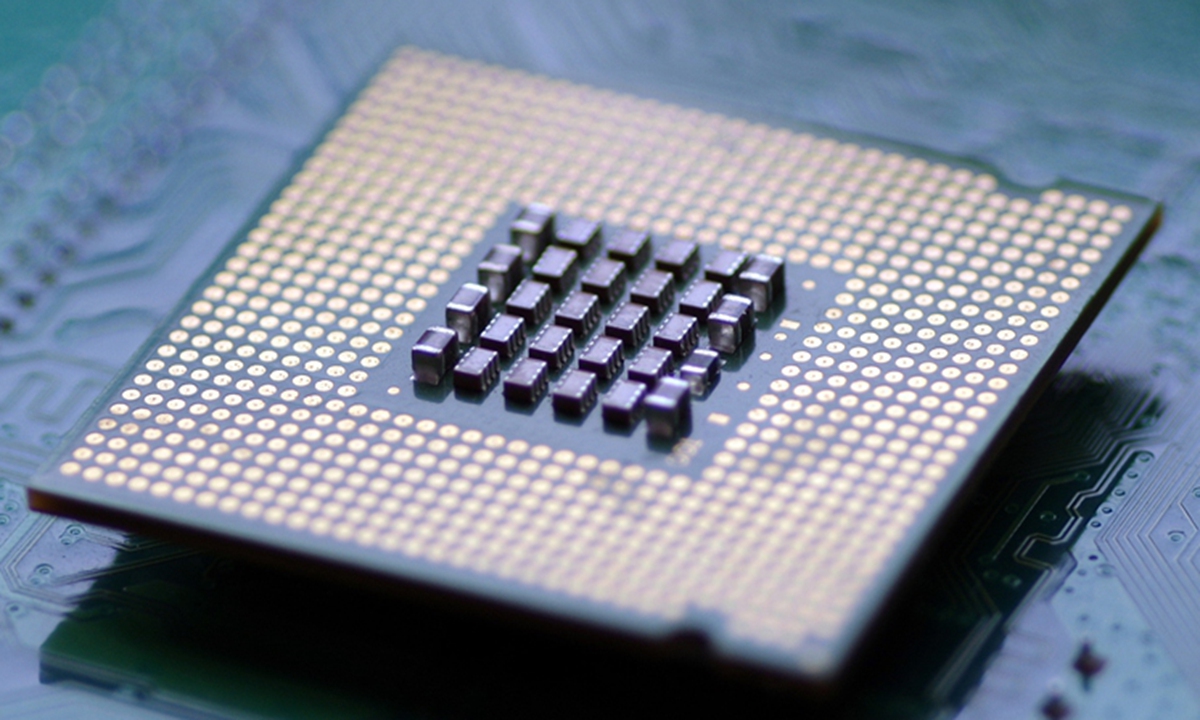US stance may end Arm’s neutrality after Nvidia deal
Source: Global Times Published: 2020/9/15 20:31:07

File photo
Amid the persistent push by the Trump administration to "decouple" from China in the technology sphere, the mere possibility that British chip designer Arm may become a US subsidiary is disturbing for not only Chinese technology companies but also a large number of European companies using Arm's technology.Maybe this is why Hermann Hauser, a co-founder of Arm, called the deal that would see Nvidia Corp pay $40 billion for Arm a "disaster." His opposition, both in terms of anti-trust and corporate interests, is convincing as it is obvious that Arm would lose its position as the "Switzerland of the semiconductor industry" if the deal goes through.
At present, Arm controls the world's most widely-used CPU instruction set architecture (ISA), and chips based on Arm architecture are used in more than 90 percent of the world's smartphones.
It is because of its consistent neutrality that chip-making and smartphone giants including Apple, Qualcomm, Samsung, and Huawei have maintained long-term cooperation with the British company.
Yet, the Nvidia's proposed acquisition would significantly weaken that neutrality that is most valuable in today's semiconductor industry. While Nvidia may also be willing to protect Arm's neutrality, it is questionable whether it is capable of really doing so.
After all, it is not just up to Nvidia to decide whether Arm would still be able to give fair treatment for all companies wherever they are based. To a certain extent, the purchase of Arm by Nvidia, if settled, could serve as another trump card for the US government in the global semiconductor industry.
Given the US-China tensions and US suppression on a range of Chinese technology enterprises, if Arm falls into US hands, Chinese technology companies would certainly be placed at a big disadvantage in the market.
Not just Huawei, all Chinese technology companies being put on the US Entity List could be cut off from Arm-based chips, while European companies using Arm technology may also encounter difficulties in supplying products to the Chinese market, contributing to a major disruption to the supply chain. Moreover, affected companies will have to look for alternatives to Arm, thus hurting the chip designer's businesses as well.
It may be too early to be pessimistic about the proposed deal, but the possibility that Arm could be politicized as a US technology weapon against China's technology companies must be taken seriously, because the stakes behind the deal are high.
Under the anti-monopoly laws in most countries, approval from local antitrust authorities is essential for the sale of a company that has a significant enough presence in the country. Thus, the Arm deal, which has stoked a big stir in the global semiconductor industry, is awaiting regulatory approvals from the US, the EU, the UK and China.
Against the backdrop of the current geopolitical environment, we hope all the regulators can extensively investigate and study the potential implications behind the deal.
As long as the US political crackdown on Chinese technological development continues, countries are advised to be cautious toward the deal that will have a far-reaching impact on the global emerging industries as a whole.
Posted in: GT VOICE